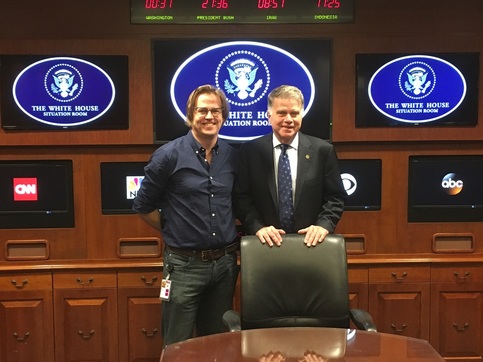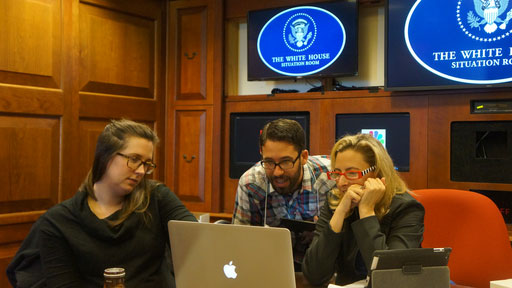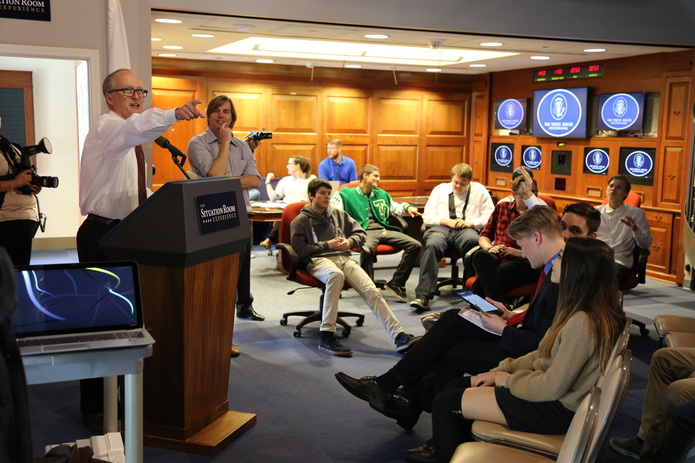Design Philosophy
Building a quality educational simulation is a team effort. Wishcraft Simulations believes its role is to guide a collaborative design effort to craft an experience that is perfect for the needs of the partner institution.
Every institution is different and every project is different. What Wishcraft can provide is a unique, custom experience that meets your needs as an institution. From the beginning we work with you to identify your target audience and the educational takeaways you want to achieve. We develop game-play and mechanics that produce the kind of behaviors and interactions that achieve your identified educational goals.
Wishcraft knows that any simulation needs to immediately engage and excite participants. They need to be free to play by inhabiting a role and making decisions in a simulation that feels like reality, albeit an exciting reality. With a background in narrative television and video games, we know how structure a story that engages students, even a story that they themselves are steering with their choices and interactions. Participants are not in school and the proctors during our simulations do not take on the role of teacher. Students are on their own, free to make decisions and change the narrative. They have the agency to make meaningful decisions and learn from the consequences of their actions.
|
Designing a simulation like this is an iterative process. It is not enough just to research the subject and deliver the appropriate content. The simulation must be tested with its target participants and revised repeatedly. Wishcraft believes in testing as soon as possible in the design process to make sure that core mechanics are successfully engaging the target participants. Typically, we “paper test” a short version of the game to make sure we are observing desired game-play. Testing also allows emergent game-play to develop as part of the design process. We look at what works and what doesn’t and then revise and test again. There are many advantages to the process but the main one is that you, the client, can be confident that the development process is meeting your needs even from the early stages and that there will be no surprises or misunderstandings at delivery. With a tablet based, electronic interface we can continue to improve and revise the experience even after you have opened to the public.
|
Empathy is a core component of any simulation. When a student takes on an assigned role, they proverbially “walk in another person’s shoes” and see the world from a new and unfamiliar vantage point. They are “transported” into a narrative, temporarily severing their connection with the real world. This is a mental space where real transformational learning can occur, the “big lessons” that are often impossible to communicate in a classroom.
Teamwork is a critical component of any experience but it is also the key part of the development and design of any simulation. The Situation Room Experience is a great example of this. The project could not have been successful without the vision and leadership of Duke Blackwood, the director of the Reagan Library. Mira Cohen, the Director of Education at the Reagan Library served as a producer on the project and developed an education curriculum around the experience. The programming and systems integration was expertly performed by Senovva. Greg Anderson, our production designer, designed the look of the experience and the cinematic physical space.
|













